'Without a doubt, I'll be part of the Celtics' tradition'
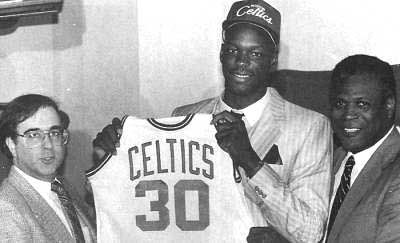
Twenty years ago today, and damned if don't I remember it like it happened 20 minutes ago.
I was 16, and with the exception of my family and maybe that cute blonde in homeroom, basketball was the most important thing in my world. It was the final half-day of school at mighty Morse High in Bath, Me., and that carefree buzz was in the air, the giddiness that comes with knowing that if we could get through this day, we had the whole summer - and so much else - ahead of us.
I popped in to say goodbye to my favorite teacher, Ms. Levesque. She taught health, attended Michigan State during the Magic Johnson era, and shared my love of hoops. I realized immediately something was terribly wrong. Her usual good cheer was whitewashed by a frozen, frighteningly unfamiliar look: "I just got back from lunch," she said. "They said on the radio that Len Bias is dead. A heart attack."
I felt the blood rush from my face, a dreadful feeling I've experienced only in the most traumatic moments of my life. Her words would not register. I could not believe them.
Len Bias? Dead? Just. Not. Possible.
I slipped out of the haze only upon seeing one of my teammates a few moments later in the hallway. My friend was a terrific player himself, so skilled that he had been invited to attend Red Auerbach's elite basketball camp the previous summer. When he returned, empowered and yet unabashedly starstuck, all his stories seemed to center around one of his counselors, a famous college player who sounded like as dynamic and cool as a person as he was a player.
The tears streaming down my teammate's cheeks told me he had already heard the news. My god, it really was true: His counselor, our hero, the next great Boston Celtic for sure, was dead.
Len Bias. Dead.
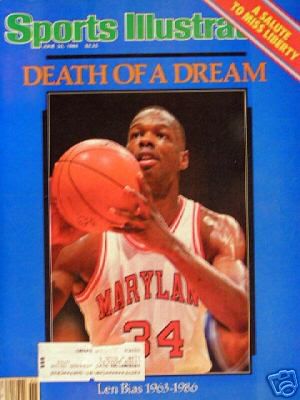
My memories of the rest of that day and the aftermath are mostly scattered snapshots and soundbites: the numbingly surreal footage of his gifted body now nothing but a long, stiff corpse wrapped in a white sheet and being loaded into the back of a black van; a somber Larry Bird saying it was "the cruelest thing I've ever heard" and oh, how I naively agreed with him; standing in the middle of the living room and staring at the front page of the Times Record, our town's afternoon newspaper, just staring at that goddamn picture. There's Bias, grinning that Kodak grin, all glorious youth and promise in his sharp new suit, holding up that pristine No. 30 jersey and wearing an endearingly ill-fitting Celtics hat. How could this photo possible go with the headline: "Celtics' Len Bias dead at age 22."
And of course, I remember learning the truth. That Bias basically murdered himself, celebrating his good fortune of being drafted by the World Champion Celtics by doing enough cocaine to kill Secretariat. I was confused why he would risk so much for one night of irresponsible revelry; I hated him for that, and it scared the living hell out of me. I swore I would never use hard drugs; if they killed him, and soon thereafter, Cleveland Browns defensive back Don Rogers, well, a doof like me had no chance.
I've stayed true to the vow, and I imagine I'm not the only one he impacted that way. But spare me the "he helped more people in death than he would have in life" rhetoric. All things considered, I'd trade any "Just Say No" lesson I learned from his senseless death for the chance to watch him play for the Boston Celtics - with Bird and McHale, with The Chief, DJ and Walton - just one time. Something tells me he'd trade his legacy as the Ultimate Cautionary Tale to live just 48 minutes of his dream.
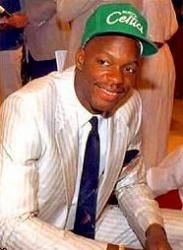
I don't need a morbid anniversary to think of him. He comes to mind when I run into that old teammate at a reunion, or when I consider the Celtics' lousy luck, or when his haunting visage appears on ESPN Classic, bounding out of the gym like a taller, fiercer Jordan and leading Maryland over North Carolina. God, I hate that footage. I watch it every time.
I've still got that old newspaper. I've carried it with me to college, to my first real job at the Concord Monitor, to the Globe, everywhere significant my career has taken me these last 20 years. Yellowed and worn, it now rests in the top drawer in the desk of my home office, along with a few other articles that have meant something to me along the way: Gary Smith's Sports Illustrated piece on the Indians boating tragedy, columns by Steve Buckley and Peter Gammons on my beloved Maine Guides, a farewell my buddy Duckler wrote upon my Monitor departure, a few other ink-stained landmarks of my life.
I catch myself looking at it every so often, but all these years later, I still don't know what to make of . . . well, all of it. How could Bias have been so reckless? Why, as one Maryland teammate asks in that feature ESPN has been running all day on SportsCenter, didn't he stop at a few lines and just go to bed? Was it a case of someone going too far while experimenting with drugs for the first time, as Auerbach and others with a reputation to lose claimed, or was he an addict adept at hiding it from those around him?
And there's the question that haunts the Boston Celtics to this day: Would he have been the player he was supposed to be, the sweet-shooting, skyscraper-scaling guar-an-teed future All-Star who would have bridged the transition from Bird and McHale to Lewis and prevented this inescapable descent into mediocrity? Or would cocaine have ruled and ruined him, just as it did Chris Washburn, Roy Tarpley, William Bedford, and so many others from that doomed '86 draft class?
I sure as hell couldn't find the answers as a lost and devastated 16-year-old that day in 1986. Twenty years later, I still can't. So I take out my old newspaper - Times Record Vol. 21, Number 120, Thursday, June 19 - and I read the Associated Press story one more time. And still I wonder: Why?
RIVERDALE, Md. (AP) - Len Bias, the 22-year-old Maryland All-American picked No. 2 in the National Basketball Association draft Tuesday, died suddenly early today after suffering an apparent heart attack.
Bias was brought to Leland Memorial Hospital, outside Washington, at 6:50 a.m. after suffering cardio-respiratory arrest, hospital spokesman Frank Berry said. Berry said Bias was unconscious and in critical condition when he arrived by ambulance.
Bias was pronounced dead at 8:50 a.m.
Jack Zane, University of Maryland sports information office, said Bias was stricken at his campus dormitory, and his teammates summoned help. Maryland coach Lefty Driesell and members of the team also went to the hospital, Zane said.
Bias was drafted by the NBA Champion Boston Celtics, and afterward said: "It has always been my dream to play in the NBA. Now I have a present within the dream, to play with the Celtics.
"Without a doubt, I'll be part of the Celtics' tradition."
* * *
(Note: Michael Wilbon, whose column on the late basketball player Derek Smith also is in my keeper file, writes about Bias today, and of course it is brilliant. Here's the link.)
(And if you can handle seeing a ghost, a video, along with a Maryland propaganda film.)
Labels: Len Bias, Michael Wilbon

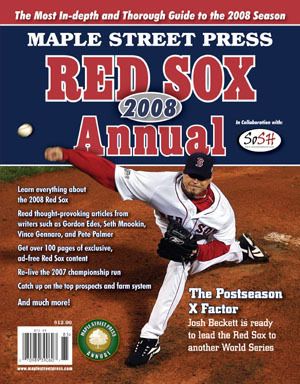
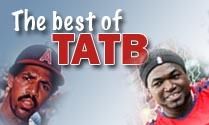









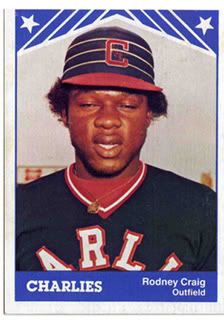
|
<< Home